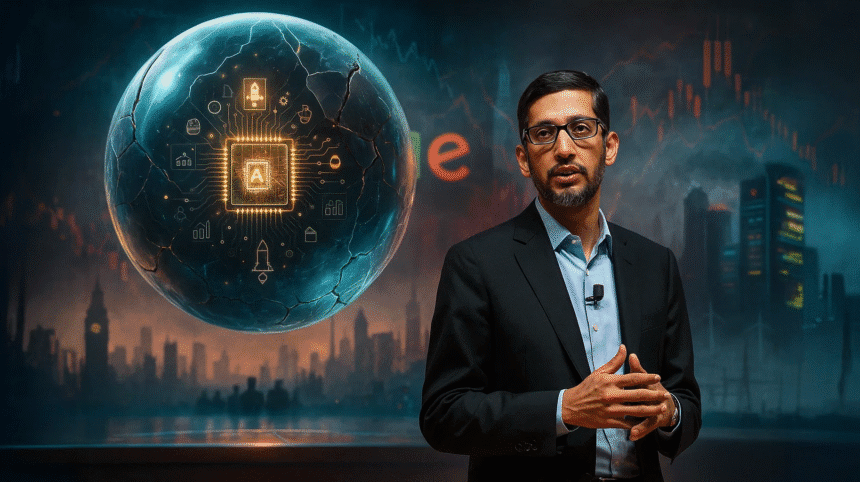Google CEO Sundar Pichai has cautioned that no technology company, not even Google itself will escape the fallout if the current artificial intelligence frenzy collapses into a full-scale market correction. His warning comes amid escalating concerns from economists and policymakers who fear that the rapid surge in AI valuations may be creating a bubble reminiscent of the early 2000s dot-com crash.
Speaking in an interview with the BBC, Pichai described the present moment as “extraordinary” for AI development, but noted that the excitement has been accompanied by “elements of irrationality.” Investors have poured unprecedented capital into AI startups, infrastructure and research labs, sending valuations soaring and prompting debate about whether expectations have outpaced reality.
Alphabet, Google’s parent company has enjoyed a strong year, with shares climbing nearly 50% as markets grow confident in Google’s ability to compete with rivals such as OpenAI. However, Pichai stressed that a downturn in the sector would be felt universally: “No company is going to be completely immune, including us.”
The warning adds to growing unease across global markets. In the United States, analysts have begun flagging inflated AI expectations as a risk to broader financial stability. In the UK, financial regulators and lawmakers have similarly raised alarms over irrational investment flows into AI firms.
Despite these concerns, Alphabet continues to expand aggressively. The company recently committed £5 billion over two years to strengthen AI research and infrastructure in the UK. The investment includes the construction of a major data center and further support for DeepMind, Google’s London-based AI laboratory. Google will also begin training advanced AI models in Britain, a development the UK government hopes will accelerate its ambition to become the world’s third leading AI power, behind the US and China.
But Pichai also highlighted a growing challenge: the immense energy demands required to power AI systems. As Google increases its computing capacity, the company now expects delays in reaching net-zero emissions targets, a compromise Pichai described as unavoidable in the short term.















